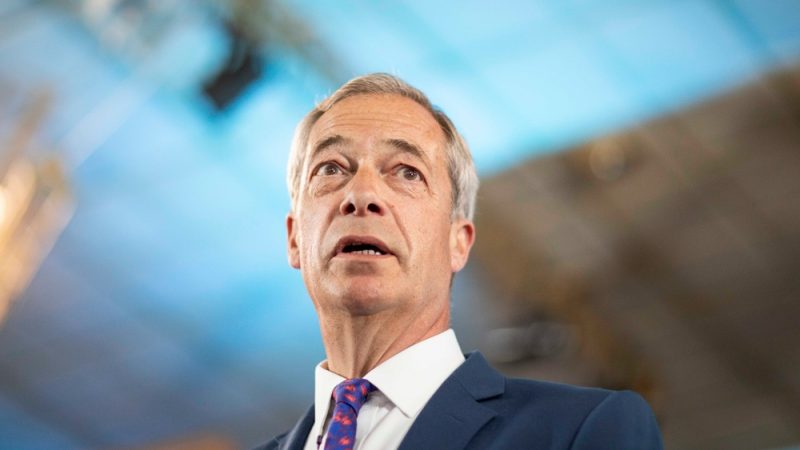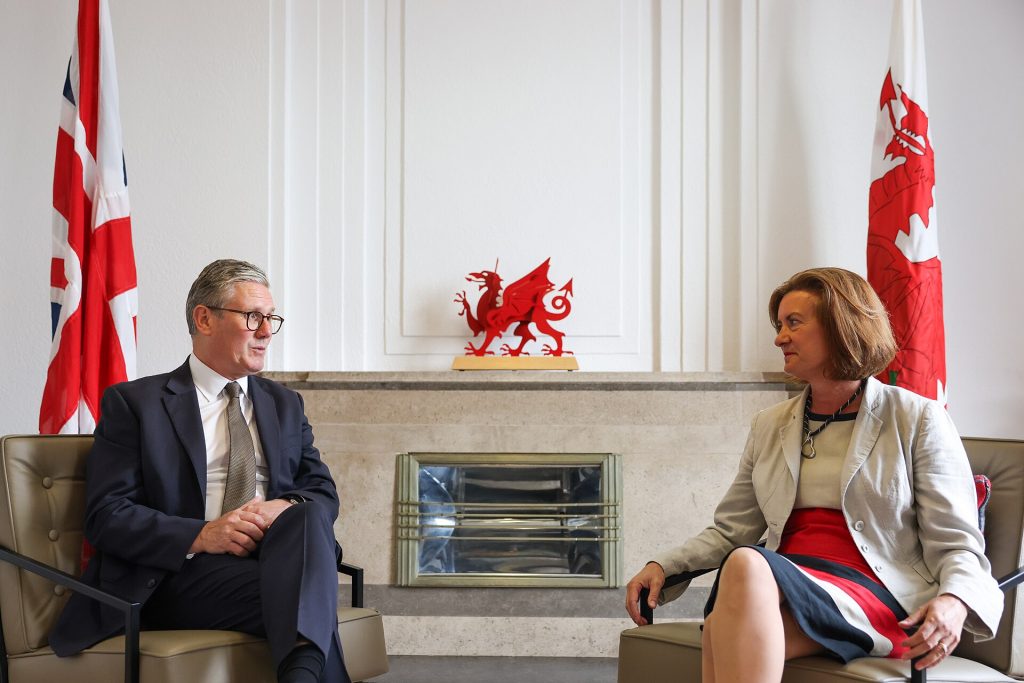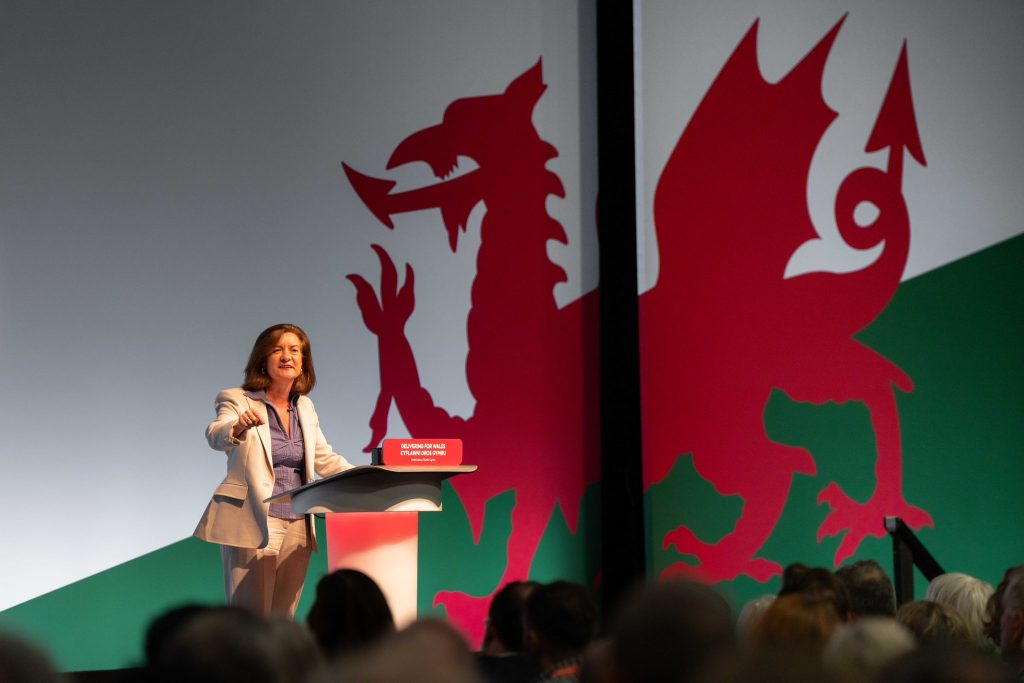
The spectre of Reform haunts Britain.
No one more so this week than long-serving Welsh Conservative Leader, Andrew RT Davies, on Tuesday. RT Davies ended up giving himself the boot, surviving a confidence motion by just 9 votes to 7. The on-and-off leader of 13 years was forced to stand down just hours later, his position no longer tenable.
It was not necessarily the drama itself that proved interesting, but the revelation in his resignation letter, of his attempts to ‘unify the centre-right right vote’ in Wales, ostensibly by appealing to Reform voters. It would certainly explain his increasingly erratic stances on the issues. Issues include alleged halal meat options in schools, a bizarre attack on a government consultation and a suggestion the Senedd should be abolished.
All this proved too much for the sensible-minded in the Conservative Party, who do exist and want to take the party in a different direction, to more agreeable pastures, perhaps even toward government.
All this to try and see off the threat posed by Reform, which he stated was the ‘only viable strategy to achieve electoral success in 2026’ ahead of the Senedd elections.
In other words, the thought of the Reform Party, and the loss of every Conservative MP in Wales in the general election, left the Conservative leader panicked.
Farage’s spectre continues to disrupt UK politics, leaving the Conservative Party struggling in its wake. With his sights now firmly fixed on Wales in May 2026, it is not only the Welsh Conservatives he has spooked. It is an emotion taking hold not just on the centre-right but the centre-left too.
‘Simple answers to complex questions’

In a recent poll from the Wales Governance Centre/Barn Cymru, eyebrows were raised as Reform’s increase in support since the general election continued apace. Planting themselves in joint second place, with 23 percent of those polled suggesting they would vote for the Faragist Reform UK – equal to those intending to vote Labour. Plaid Cymru squeezed past to take a narrow one percent lead on 24 percent.
What seems to have spooked the Welsh Conservatives is the fact they are in fourth place on 19 percent. What is worrying Labour strategists is this rise in Reform support comes almost entirely at the expense of Labour vote share, especially in the vote-rich Welsh Valleys. A part of the world that has voted Labour for 102 years.
New Labour First Minister Eluned Morgan dismissed Reform in her recent conference speech as only having “simple answers to complex questions”. Needing to dedicate precious time to the insurgent party is a sign of the significance Nigel Farage is beginning to have on the national debate stage. Anxiety that may well have sunk Morgan’s rival Conservative leader, but cooler heads could still prevail.
READ MORE: ‘A new Wales is on the horizon’: Eluned Morgan’s speech to Welsh Labour
Organisation Nation

Eluned Morgan is tasked with dealing with this new threat. Reform has an estimated 4,000 members in Cymru, organising themselves into campaigning branches according to each of the new 16 ‘super constituencies’ created as part of the electoral reform package that saw the introduction of a proportional voting system earlier this year.
This new PR system already appears to be facilitating the birth of a multi-party system, with each of the four main parties presently within just five percent of the vote of each other.
It sets the stage for an almighty punch up, nowhere more so than the Welsh Valleys, seats which stretch from Llanelli in the West to Torfaen in the East between Labour, Reform and Plaid Cymru are all in play.
The professionalisation of Reform is noteworthy also, behaving more as a slick start-up, contrasted against the rag-tag band UKIP Senedd Members of old used to represent. Their leader in Wales is swift to give journalists the quotes they are looking for, and their recent Welsh conference at the Celtic Manor resort oozed the fact they are now a well-funded operation behind their star striker, Nigel Farage.
READ MORE: Interview – Eluned Morgan on the new Senedd voting system and ‘moving on’ from Welsh Labour rifts
Regaining the initiative
What remains at the disposal of the First Minister is her ability to make use of the £1.7bn increase in the annual Welsh budget to cut NHS waiting times. With 800,000 people in a country of three million currently on some sort of waiting list, this is the number one issue among the Welsh electorate, with just 18 months to go until heading to the polls.
Morgan in a recent interview expressed that the tricky NHS numbers will in all likelihood come down, going so far as to put expected numbers in place, to be reported in the New Year.
There is a worry, however, that the political initiative has already been lost. With concern that Reform have real momentum going into the new year, there is a need to reclaim the race and the narrative going into the elections. Public service success alone may not be enough. As recent elections in the United States showed, even a strong economy does not translate into assured victory.
These elections will have heightened public awareness as the Welsh Parliament’s role in day-to-day life became more apparent than ever in the wake of the COVID-19 pandemic and the introduction of the new national 20-mph limit. Elections which are typically plagued by low turnout and low voter interest.
For more from LabourList, follow us on Bluesky, Threads, X,Facebook, Instagram or WhatsApp.
Halting the advance
Governments the world over are struggling against anti-incumbent sentiment, and Welsh Labour’s dramatic drop in the polls appear to be the latest in a global trend in the democratic world.
Wales’ position is especially acute. Our nation has some of the worst health outcomes in the United Kingdom, the lowest wages, the highest scores in poverty measures across unemployment, child poverty, childhood and adult obesity and teenage pregnancy.
It stands to reason voters will begin to reach for the alternatives, and worse yet, the extremes to resolve these problems. Welsh Labour is tasked with articulating a forward-looking agenda that resonates with voters’ hopes, not just their frustrations, even with the added penalty of incumbency.
This could mean bold policies on green jobs, infrastructure investment, or tackling inequality, territory on which the Labour Party, in a left-leaning nation such as ours, has thrived for generations.
As anti-incumbency grows and voters seek alternatives, Welsh Labour must not only deliver on public services but also offer a bold, compelling vision that outshines Reform’s simplistic solutions. The newly elected Labour government in Westminster has thrown the Welsh government a funding lifeline – how it is deployed to slow down Reform’s advance, is what will define the campaign.
Over to you, First Minister.
SIGN UP: Get the best daily roundup and analysis of Labour news and comment in our newsletter
- SHARE: If you have anything to share that we should be looking into or publishing about this story – or any other topic involving Labour– contact us (strictly anonymously if you wish) at [email protected].
- SUBSCRIBE: Sign up to LabourList’s morning email here for the best briefing on everything Labour, every weekday morning.
- DONATE: If you value our work, please donate to become one of our supporters here and help sustain and expand our coverage.
- PARTNER: If you or your organisation might be interested in partnering with us on sponsored events or content, email [email protected].




More from LabourList
Economic stability for an uncertain world: Spring Statement 2026
‘Biggest investment programme in our history’: Welsh Labour commit to NHS revamp if successful in Senedd elections
James Frith and Sharon Hodgson promoted as government ministers